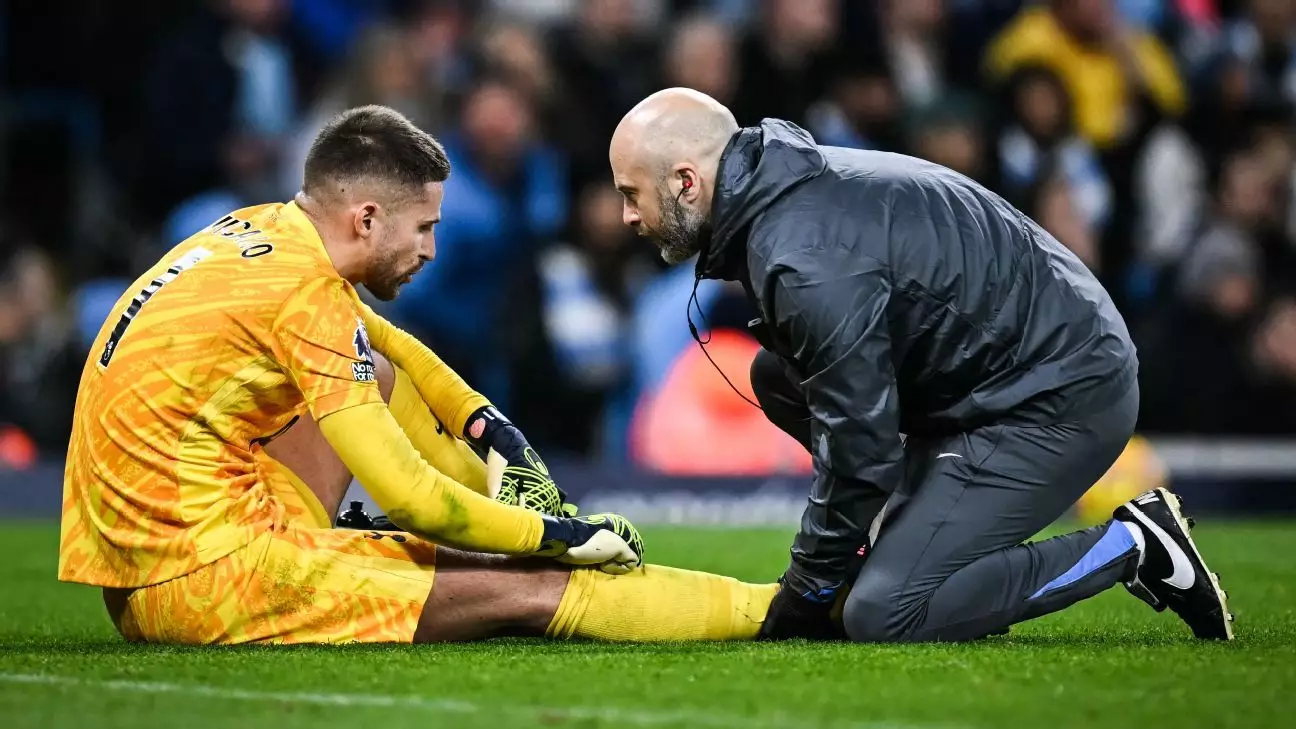Ange Postecoglou, the head coach of Tottenham Hotspur, has found himself navigating a challenging terrain following the club’s recent triumph against Manchester City. Central to this challenge is the unexpected injury to goalkeeper Guglielmo Vicario, who sustained an ankle fracture during the match. This incident has not only raised questions regarding the player’s resilience but also the implications for Tottenham’s campaign as they aim for success this season.
The first noteworthy aspect of this situation is the sheer bravery exhibited by Vicario. Despite the injury, he continued to perform admirably, playing the entire 90 minutes and making crucial saves that contributed to the team’s commanding 4-0 win. Postecoglou’s acknowledgment of Vicario’s toughness, remarking that he is “tough as nails,” resonates deeply, reflecting a broader narrative about dedication and commitment in professional sports.
Typically, such injuries might compel a player to withdraw, especially in the high-stakes atmosphere of a match against Manchester City. Vicario’s ability to push through the pain not only highlights his determination but also sets a standard within the squad about what it means to display commitment to the team’s goals. However, the severity of his injury—a fracture—raises serious concerns. The decision to play on may have immediate benefits but could have long-term consequences for both Vicario and the team, especially considering the modern game’s physical demands.
Postecoglou confirmed on social media that Vicario would require surgery and is expected to miss “months” rather than weeks. For a team that has ambitions of competing for top honors, this is a significant setback. The goalkeeper was beginning to establish himself as a vital figure in the squad, providing both skill and leadership. Losing him for an extended period could disrupt the team’s cohesion and the momentum they had been building.
The managerial decision to forego adding a free agent to bolster the goalkeeping options speaks volumes about Postecoglou’s confidence in his squad. Fraser Forster, Vicario’s stand-in, has experience and has already made several appearances for Spurs this season. While Forster is capable of stepping into the role, one must wonder if relying solely on him can maintain the same level of performance that Vicario brought to the pitch.
Moreover, this injury forces Postecoglou to rethink strategies. In games where defensive stability is paramount, having an experienced goalkeeper like Forster may suffice, but his ability to replicate Vicario’s prowess in tight situations remains uncertain. The dynamic of the team’s playstyle could undergo an adjustment, necessitating a more cautious approach until they can recover their first-choice keeper.
Beyond the immediate implications for Vicario, this injury also reflects a broader challenge facing Tottenham as they navigate the rigors of the Europa League and domestic competitions. With their position in the league table still precarious, every match is an opportunity to establish credibility and push for higher placements. The upcoming match against Roma underlines this urgency, as the team will seek to solidify their standing amidst these changes.
The mention of Claudio Ranieri, the newly appointed Roma manager, not only adds to the narrative but serves as a reminder of the ever-evolving landscape in football management. Ranieri’s long tenure in the game exemplifies the dedication required at the top, and facing a manager of his caliber will provide a litmus test for Postecoglou’s methods and adaptability.
While the initial shock of Vicario’s injury may have worn off, the reality sets in that Tottenham must now rethink their approach as they aim to maintain their competitive edge. The resilience of their players, the tactical adjustments made by Postecoglou, and the support for Forster during this transitional phase will ultimately determine how the club navigates this challenging chapter in their season.

